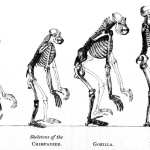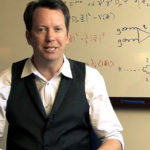The Absolute Uniqueness of Unconditioned Reality
by Karlo Broussard
Filed under The Existence of God
NOTE: Today we continue our six-part series by Karlo Broussard on a metaphysical proof for God's existence. The posts will run each of the next four Mondays:
- Part 1 - Why Must There Be at Least One Unconditioned Reality?
- Part 2 - The Absolute Simplicity of Unconditioned Reality
- Part 3 - The Absolute Uniqueness of Unconditioned Reality
- Part 4 - The Key Divine Attributes of the Absolutely Unique and Simple Unconditioned Reality
- Part 5 - Key Attributes: Perfection the Three Omnis
- Part 6 - Important Features of the Metaphysical Proof
For readers who have already read the first and second installments on the metaphysical demonstration for God’s existence, they will recall how it was argued that there must be at least one unconditioned reality in all of reality and that such reality must be absolutely simple in nature, which means such reality cannot be restricted in its mode of existence (can’t have any spatial, temporal, or existential restrictions) but must be pure being or pure existence itself that is compatible with and inclusive of all other real or really possible modes of being.
In this third installment, it is my intention to argue for the absolute uniqueness of unconditioned reality—that is to say there can be only one absolutely simple unconditioned reality. When combined with the attribute of absolute simplicity, absolute uniqueness moves us one step closer to seeing such a reality worthy of being called “God.”
Consider, first, for argument sake that there are multiple instantiations of unconditioned reality—we will call them UR1 and UR2 for the sake of brevity. Now, in order to have multiplicity we are going to have to differentiate UR2 from UR1; otherwise they would be self-same and therefore one.
Now, the difference implies a distinguishing note or some principle of dissimilarity (as Fr. Spitzer puts it in his book New Proofs for the Existence of God: Contributions of Contemporary Physics and Philosophy, an “instantiating factor”). In other words, there would have to be some factor that differentiates UR2 from UR1 and makes UR2 a particular or distinct instantiation of unconditioned reality.
We normally distinguish modes of being by factors such as space, time, or a way of existence. For example, this tree exists here and that tree exists there. This tree existed before (or after) that tree. This tree exist in the pine tree way and that tree exist in the oak tree way.
So, if UR2 is to be distinguished from UR1, then UR2 is going to be different than UR1 either due to a position in space (not existing somewhere where UR1 is), or a point in time (not existing at a time when UR1 does), or a way of existence (not existing in the way that UR1 exists).
Given this hypothetical state of multiple instantiations of unconditioned reality, we can offer five separate lines of reason for why it is metaphysically impossible to have multiple URs.
First, to differentiate UR2 from UR1 by space, time, or a way of existence is to restrict its mode of existence. For example, if UR2 is differentiated by space, then it's going to be restricted to existing here and not there. If UR2 is differentiated by time, then it’s going to be restricted to existing now instead of then. If UR2 is differentiated by a way of existence, then it’s going to be restricted to existing in this way instead of some other way.
Now, as shown in the previous installment of this series, restrictions (or boundaries) are that which cause exclusion and make for real or really possible incompatible states of being on the same level of simplicity—much like how a proton’s existential restrictions allow for the incompatible state of an electron to be excluded from it. But as we have already demonstrated in the previous post on absolute simplicity, unconditioned reality cannot have any restrictions (or boundaries) that would allow for any real or really possible incompatible state of being to be excluded from it less we end up in an intrinsic contradiction. Furthermore, unconditioned reality must be compatible with and inclusive of every other real or really possible mode of being in order to ultimately fulfill the conditions necessary for the existence of every other real or really possible mode of being. This cannot be if unconditioned reality has restrictions.
So, any restriction that we ascribe to UR2 (or any other hypothetical multiple instantiation of unconditioned reality) in order to differentiate it from UR1 would result in UR2 not being unconditioned reality at all. Therefore, there can be only one unconditioned reality.
The second line of reason follows from the fact that unconditioned reality cannot have any real or really possible incompatible states of being on the same level of simplicity. Recall, as we mentioned in our previous post, that protons allow for incompatible states of being on the same level of simplicity such as neutrons and electrons. Although different because of their particular restrictions, we see that neutrons and electrons are the same kinds of being as protons, namely particles. Similarly, the electromagnetic field allows for the incompatible states of being on the same level of simplicity (simpler than particles) such as the neutrino field, the electric field, the gravitational field, etc. Although different because of their particular existential restrictions, we see that these fields are the same kinds of being, namely fields. So, it follows that those states of being that are on the same level of simplicity are the same kinds of being—multiple instantiations of a particular nature or essence.
Now, since unconditioned reality cannot have any real or really possible incompatible states of being on the same level of simplicity, it follows that it cannot have any states of being that are of the same kind—there can be no multiple instantiations of unconditioned reality. Unconditioned reality, therefore, is absolutely unique.
The third line of reason considers how the differentiating factor that distinguishes UR2 from UR1 precludes UR2 from being pure being or pure existence. As mentioned above, UR2 would have to be differentiated either by a spatial restriction, a temporal restriction, or a way of existence. Now, the presence of such restrictions would constitute within the nature of UR2 a metaphysical composition of being plus the restriction. For example, UR2 might have the act of being plus a position in a spatial manifold—existing here rather than there; or it might have the act of being plus a point in the temporal manifold—existing now rather than then; or it might have the act of being plus a particular way of existence (“existence” plus “essence” in Scholastic jargon)—existing in this way instead of some other way.
Notice how in each case the restriction is not identical with but distinct from UR2’s act of being. As such, UR2’s nature would not be pure being or pure existence but an act of being plus the restriction. But as proven in the previous post on absolute simplicity unconditioned reality considered in and of itself must be pure being or pure existence without restrictions. Therefore, unconditioned reality cannot have any type of restriction that is distinct from its act of being. And since multiplicity necessitates some restriction, it follows that there cannot be a multiplicity of unconditioned realities. Therefore, there can be only one unconditioned reality.
The fourth line of reasoning for the absolute uniqueness of unconditioned reality follows from the third. Consider the aforementioned conclusion that the attempt to postulate UR2 ends up with UR2 being metaphysically composed of being plus a restriction. Now, since the restriction within UR2 (or any hypothetical multiple instantiation of UR for that matter) is not the act of pure being or pure existence itself (it’s distinct from it), it follows that the restriction is not unconditioned reality itself—recall from our previous post that unconditioned reality is pure being or pure existence.
Now, if the restriction is not unconditioned reality itself, then it must be a conditioned reality. But if one of the component principles of UR2’s nature is a conditioned reality, then the composite must be a conditioned reality, in which case UR2 (or any hypothetical multiple instantiation of UR) would not be unconditioned reality at all. Therefore, there can be only one unconditioned reality.
Finally, only one unconditioned reality must exist because UR2 would be dependent upon something outside itself for its restricted mode of being. Recall from the first line of reason that the differentiating factor is going to be a restriction of some sort that limits UR2’s mode of being. It will either be restricted to existing here instead of there; or it will be restricted to existing now instead of then; or it will be restricted to this mode of being instead of that mode. And recall further how such restrictions allow for a real or really possible incompatible state of being that would be excluded from it (like the electron is an incompatible state of being excluded from the proton.)
Now, if UR2’s mode of being is restricted with spatial or temporal restrictions, one must ask the following questions: “Why does UR2 exist here instead of there?” and “Why does UR2 exist now instead of then?” If UR2’s mode of being is restricted by a particular way of existence, then one must ask the question, “Why does UR2 exist in this mode instead of some other mode?” With these questions, we are basically asking, “What is it that determines UR2’s spatial restriction, or temporal restriction, or way of existence?”
This question of determination suggest the need for a principle of selection that selects this spatial position, this temporal point, or this mode of being from the wider range of possible spatial positions, temporal points, and modes of being. Such a principle of selection cannot be UR2 itself because in such a case UR2 would have to exist prior to determining its own spatial location, temporal point, or mode of being – picking out the space, time, and mode of being it likes prior to existing. Obviously this cannot be. Therefore, the principle of selection must be something other than UR2.
But if the principle of selection would have to be something other than UR2, then UR2’s spatial location, temporal placement, or mode of being would be conditioned by that principle of selection, in which case it would be a conditioned-unconditioned reality in the same respect at the same place and time. This amounts to an intrinsic contradiction. Therefore, unconditioned reality cannot be conditioned by a principle of selection.
Now, if unconditioned reality cannot be conditioned by a principle of selection, then it cannot have any sort of restriction that would restrict its mode of being, which as indicated above necessitates a principle of selection. And if unconditioned reality cannot have any sort of restriction to its act of existence, which is necessary for multiplicity, then there cannot be multiple unconditioned realities. Therefore, there must be only one unconditioned reality in all of reality.
From these five lines of reason, it follows that there can be one and only one unconditioned reality in all of reality that is absolutely simple—only one reality that is pure being or pure existence.
Now, since there can only be one absolutely simple unconditioned reality, it stands to reason that such a being is worthy of the term “God.” But are there more divine attributes that we can deduce about this reality? The answer is yes, but that will have to wait until the next post.
(Image credit: Jay Mantri)
Related Posts
Note: Our goal is to cultivate serious and respectful dialogue. While it's OK to disagree—even encouraged!—any snarky, offensive, or off-topic comments will be deleted. Before commenting please read the Commenting Rules and Tips. If you're having trouble commenting, read the Commenting Instructions.













